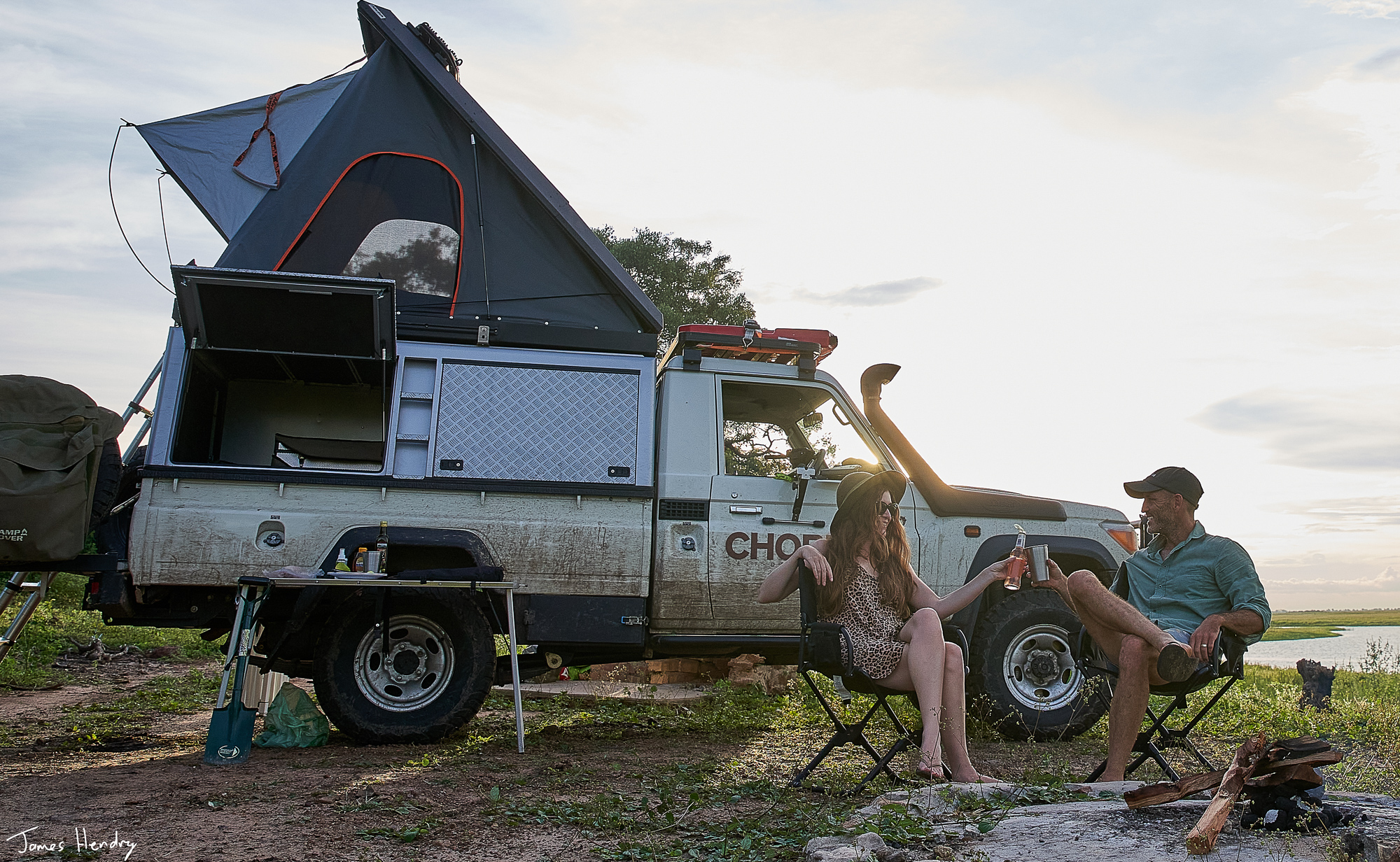In January 2021, my wife, Kirsten, and I went on a self-drive safari in Botswana in a vehicle from Chobe 4X4. We are camping idiots and always depart with a slight sense of trepidation that we may not return. It is not being in the wild that worries us; it is our profound mechanical ignorance.
Our Chariot
Our vehicle was the perfect machine for mechanical imbeciles. It was impossible to break—the sort of vehicle perfect for driving into northern Botswana in the wet season. Our bedroom was a rooftop tent that took 20 seconds to erect. The back was equipped with everything a camper might need: cutlery, crockery, pots, pans, fridge-freezer, tools, tow ropes, table and chairs, that I had almost learned to fold by the end of the trip. In the cab, there was a GPS loaded with Tracks4Africa, a satellite phone, and USB charging points just about everywhere you looked.


Savuti
We arrived at Camp Savuti in time for a glorious sunset that sprayed the sky with a hundred shades of carmine. Lions called, and thunder rolled through the night as we lay happily (and safely) in our spacious rooftop bedroom.
We spent three days exploring magnificent Savuti—elephants, buffalo, general game, and birds forever. The carmine bee-eaters were magical, their pink, red, and blue juxtaposed with the grey skies and emerald plains. Our highlight came on the last morning when we found a dark-maned lion strolling across a clearing to the south of the camp, roaring his head off.
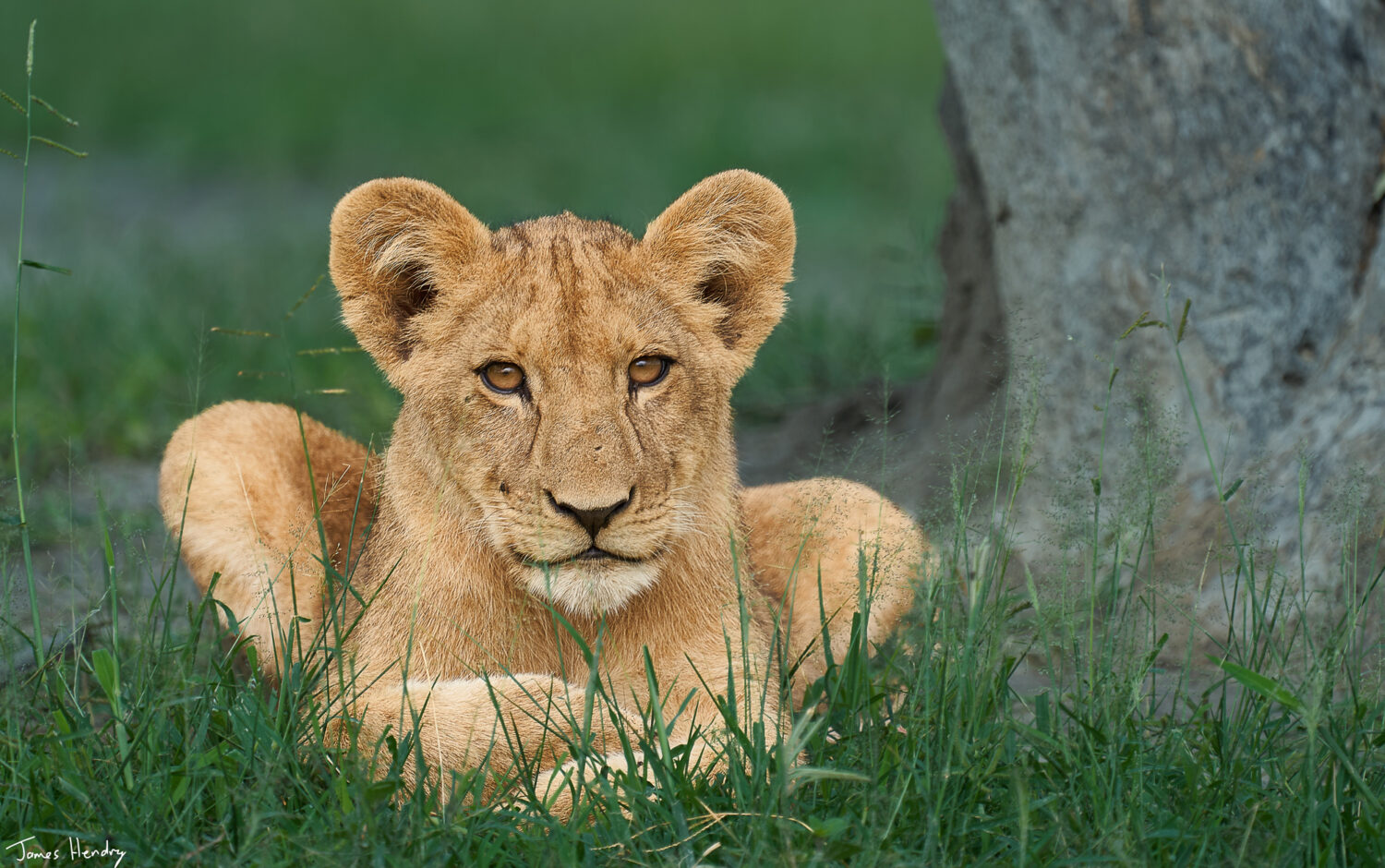
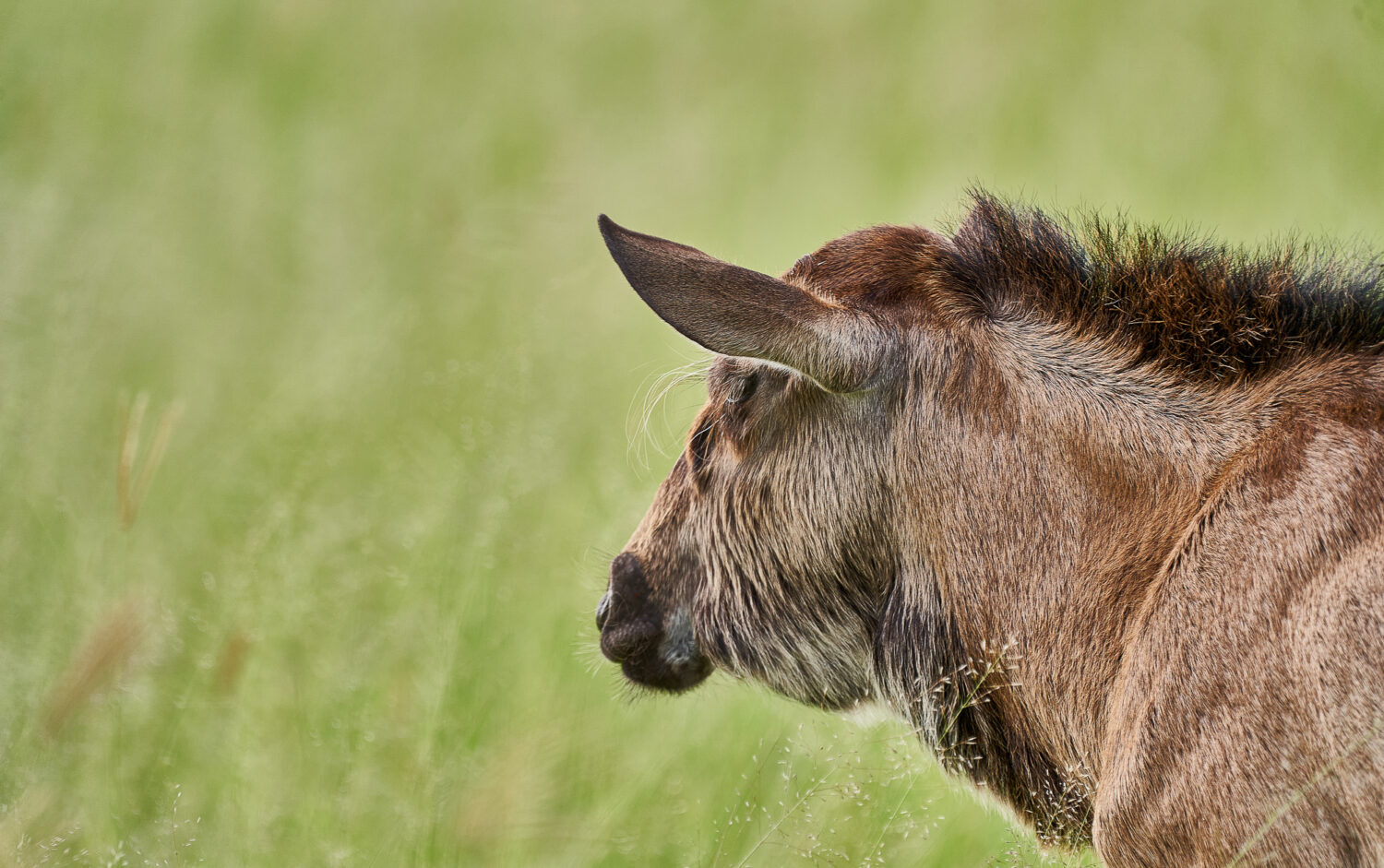
The Chobe Riverfront
It was a very pleasant drive from Savute up to the Chobe riverfront, where we spent three nights at Ihaha camp. We enjoyed days driving on the riverfront, exploring the floodplains, picnicking under the fig trees, and enjoying the plethora of birdlife that lives on in or near the water. Just about every fruiting caper bush or feverberry had a baboon or 50 hanging in it or from it. The primates were a constant source of hilarity, pulling each other’s tails, wrestling in the sand, falling out of trees, and screeching at each other.
Our last night on the river was a magical boat cruise from the Chobe Safari Lodge. As the sun set, we watched elephants coming down to drink, hippos climb onto the islands to graze, lechwe galloping over the floodplain, and darters skimming over the water, wingbeats breaking the glassy surface as it reflected the pinkening sky.
Makgadikgadi
The road to Makgadikgadi from Kasane took us due south to the bustling metropolis of Nata, where we fueled up. As we had come to expect, there wasn’t another human soul at Kumaga Camp. There were many monkey souls, however—a well-experienced, innovative, and fearless bunch of thieves. Luckily, they weren’t particularly subtle about it, so we quickly figured them out and locked everything up.
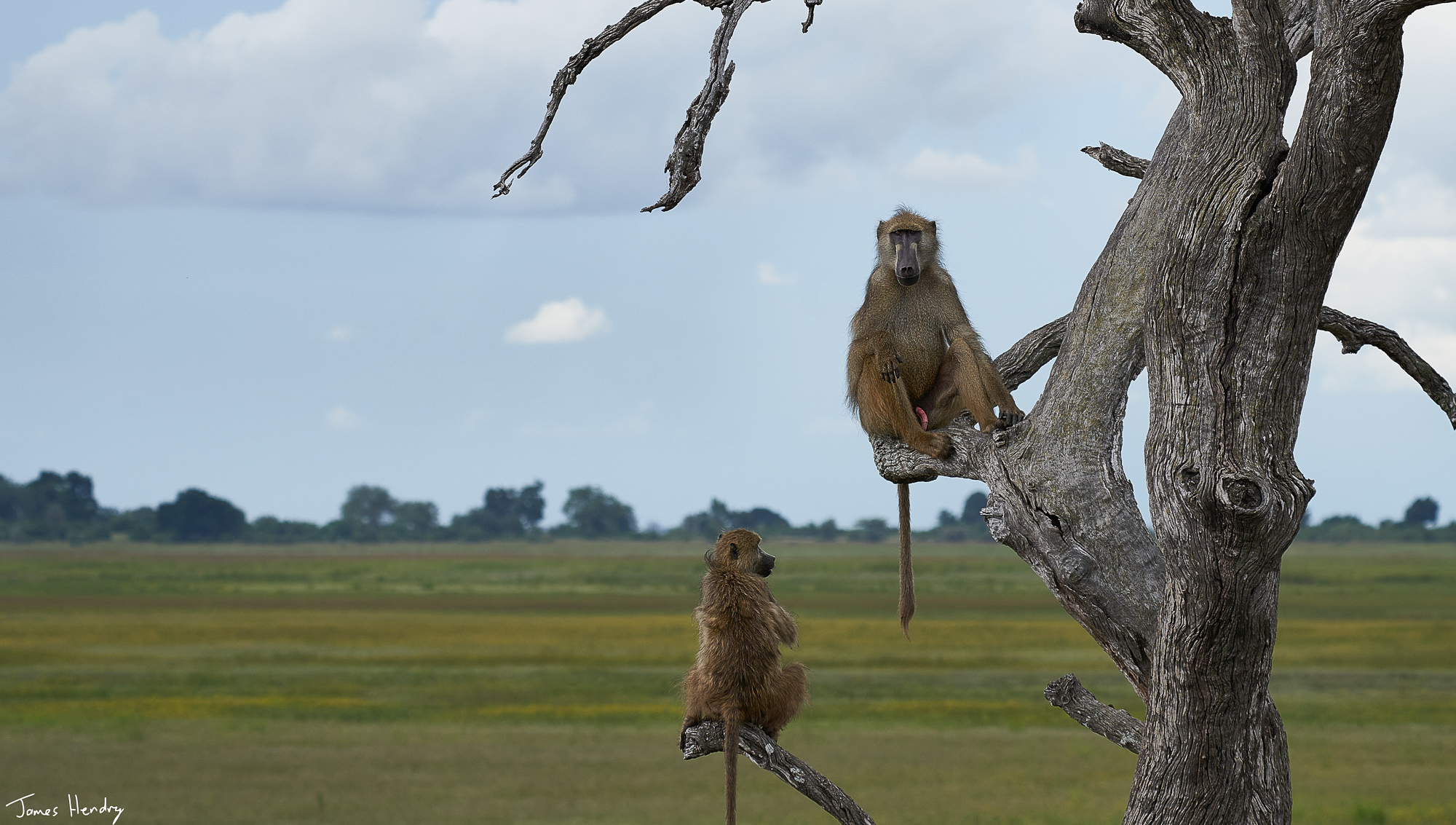
All the action took place on the Boteti River. Birds, kudus, zebras, impalas, and hippos plied their various trades on the banks in the reeds, on the lily pads, and beneath the crystalline surface. On our second evening, we found a viewpoint over the water. As the sun set, two elephant bulls grazed in the sedges and reeds before crossing the river, the water reflecting the end of another stunning day in Botswana.
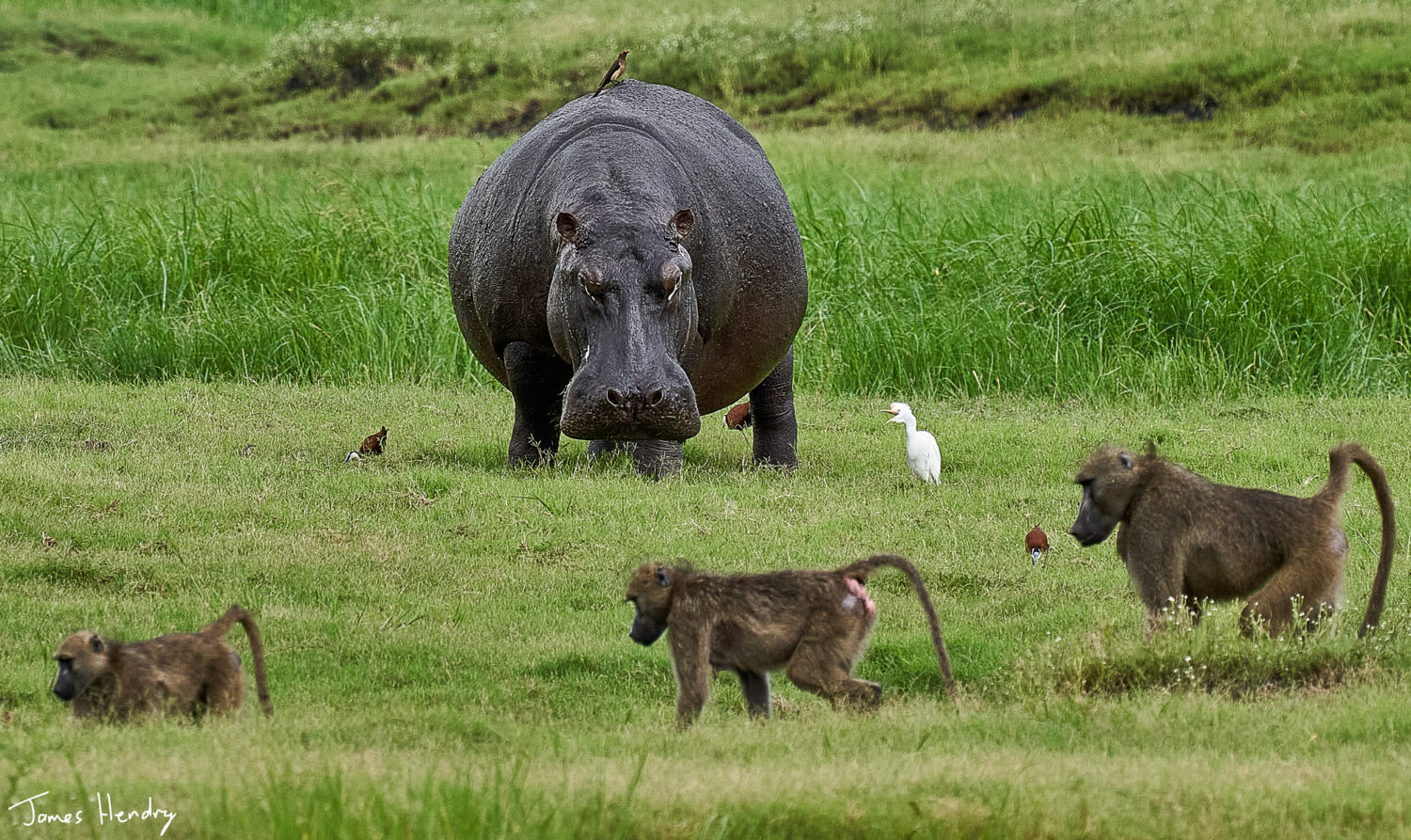
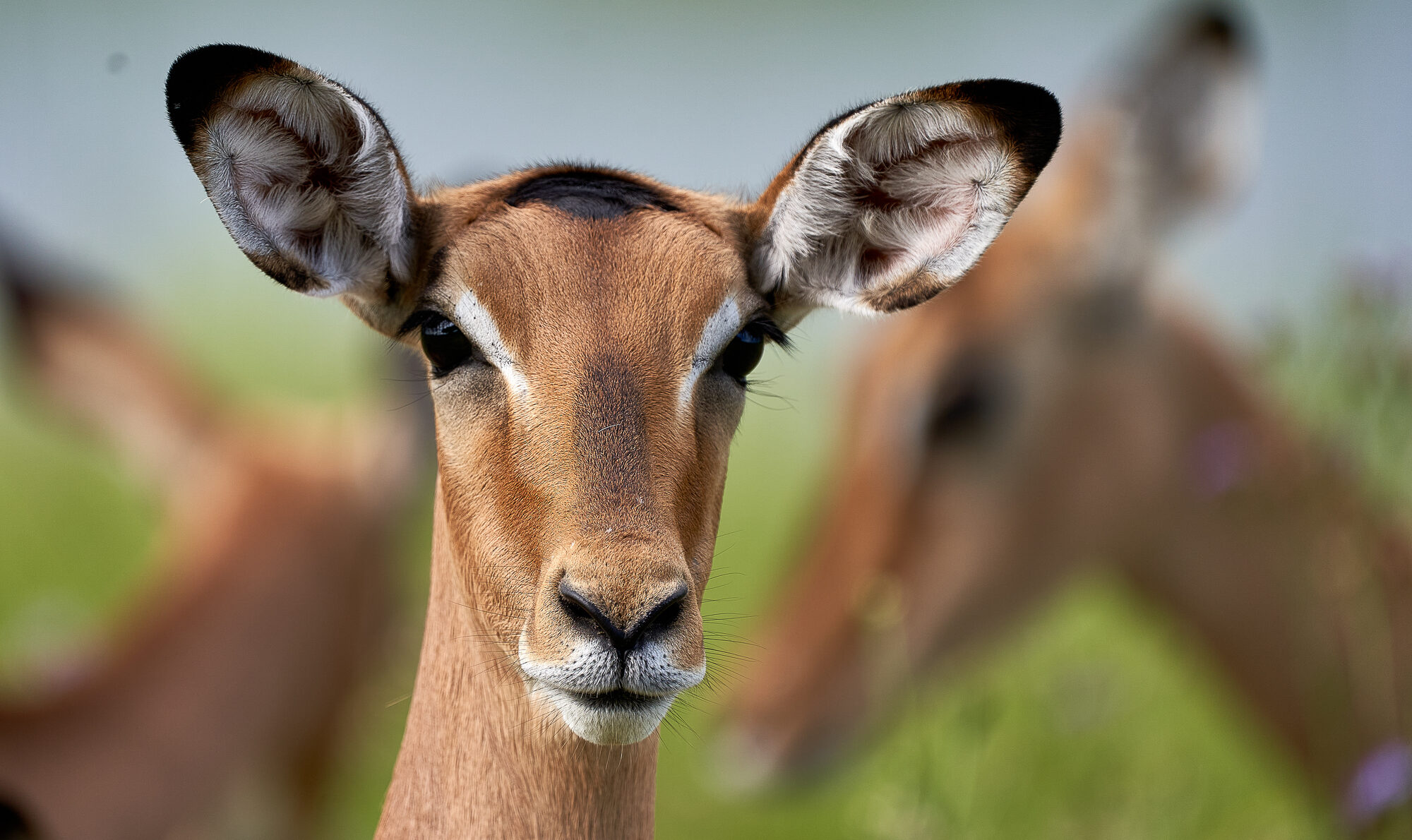
Nxai Pan
It was at Nxai Pan National Park that we had our best wildlife viewing. There were hordes of zebras, giraffes, elephant bulls, jackals, huge herds of springboks, gemsboks, and one cheetah. On our last evening, my sharp-eyed (and tongued) wife picked out a bat-eared fox frolicking amongst a termite emergence. Then it wasn’t just one but five bat-eared foxes, leaping through the termite feast backlit by the glorious sun.
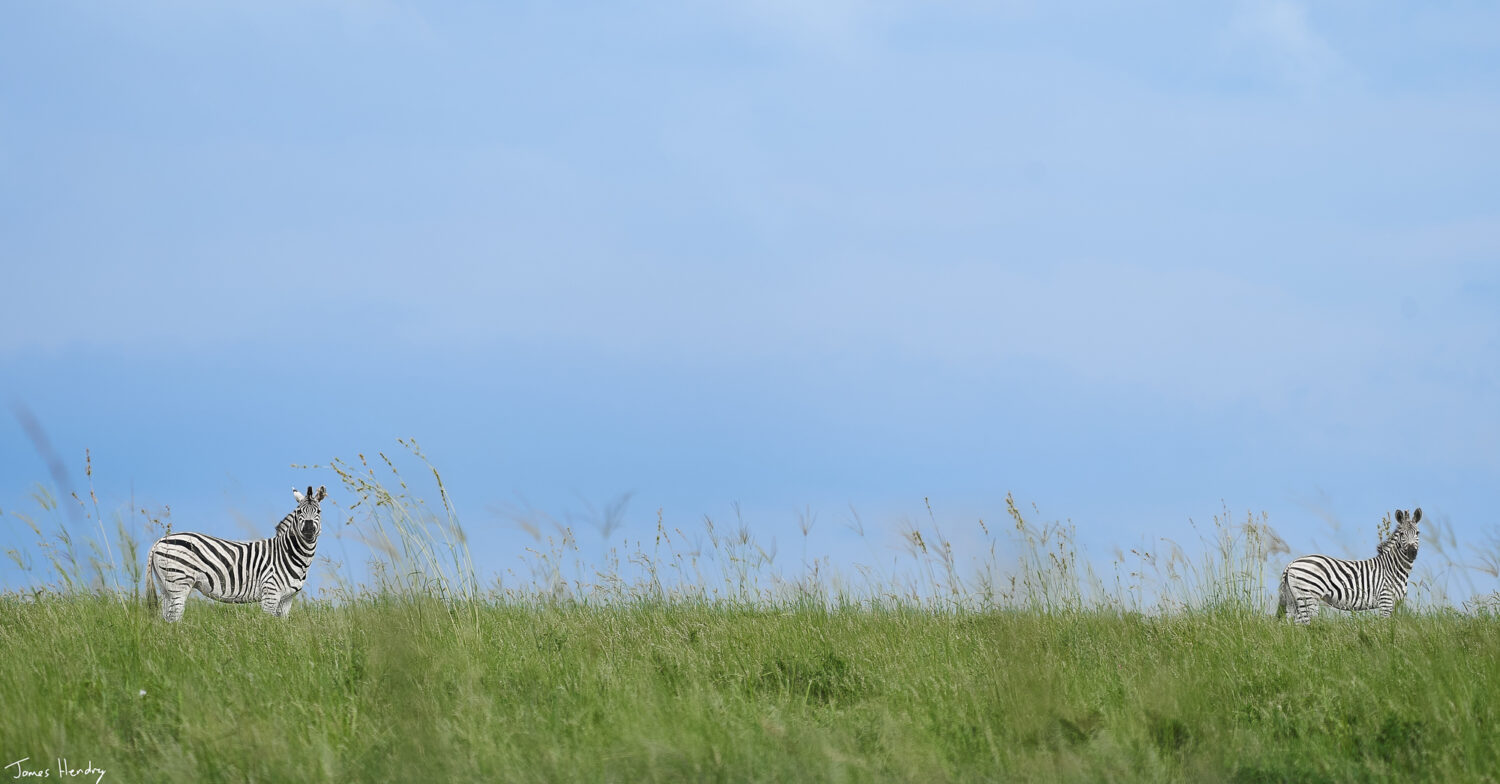


Our final sighting was a lioness plodding towards a herd of springboks, trying to single out a weak animal. The herd gave the lioness a wide berth and eventually began swirling around her. The image of hundreds of springboks running in a circle, a lioness standing in their midst, all lit by the sun setting through a rolling storm, is one that will stay with us forever.



